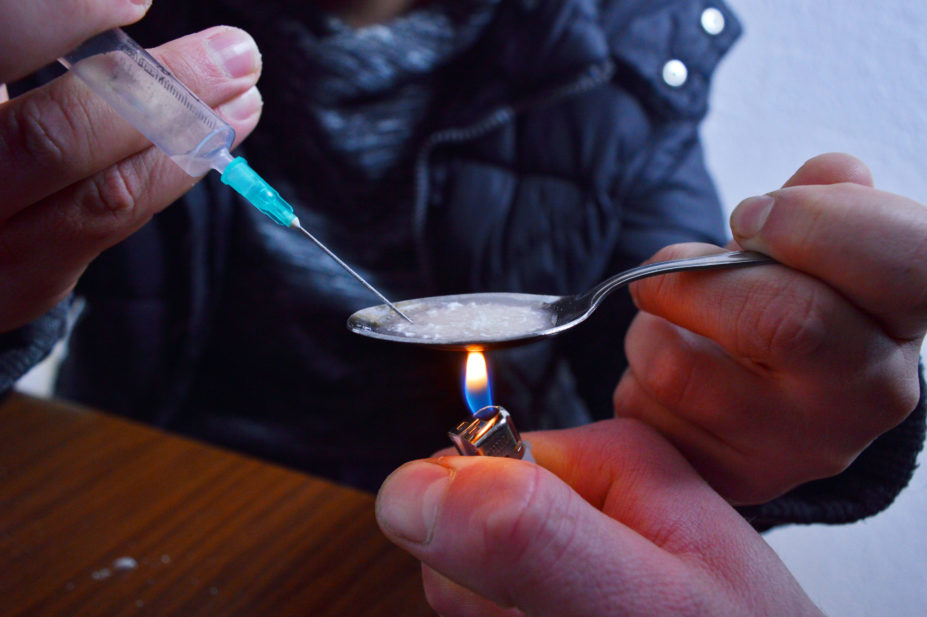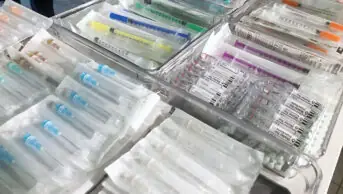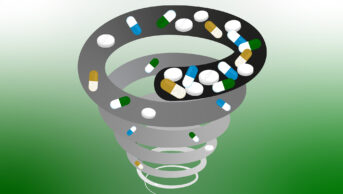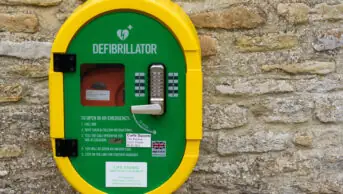
Shutterstock.com
The number of drug-related deaths in Scotland rose to more than 1,300 in 2020 — its highest annual number since records began in 1996 — new data from the National Records of Scotland (NRS) has shown.
The 1,339 deaths related to drug misuse that were registered in the nation in 2020 represent a 5% increase on the 1,264 deaths recorded in 2019.
Two-thirds (63%) of the deaths in 2020 were of people aged between 35 and 54, the NRS said. After adjusting for age, men were 2.7 times as likely to have a drug-related death than women.
The data also show that people living in the most deprived areas of Scotland were 18 times more likely to die from a drug-related condition than those in the least deprived areas.
NHS Greater Glasgow and Clyde Health Board, which includes some of the most deprived areas of the country, reported to have the highest age-standardised drug-related death rate of all health board areas at 30.8 deaths per 100,000 people.
NHS Highland had the lowest drug-related death rate of all the health boards for which these figures are available, at 13.3 deaths per 100,000 people.
In June 2021, the Scottish government announced that it would allocate £14.4m to frontline services in 2021/2022 to help reduce the number of drug-related deaths; funding that will come from a larger pot of £250m over the next five years.
This includes £4m to implement new medication-assisted treatment (MAT) standards that will enable drug users to receive same-day treatment for drug-misuse and a further £4m for the provision of long-lasting buprenorphine, an opioid substitution treatment, in prisons and the wider community.
Some £400,000 will also be used to expand existing heroin-assisted treatment services in Glasgow, and to explore its use in other parts of Scotland.
Catriona Matheson, chair of the Scottish Drug Deaths Taskforce — a cross-sector group set up in 2019 with the aim of reducing the nation’s rising number of drug-related deaths — said: “Every drug-related death in Scotland is an avoidable tragedy, and these figures serve to remind us of the importance and urgency of our mission to identify the areas of action that can make a sustainable impact against the challenge.
“We believe the approach of putting evidence into action has saved lives, and we will analyse the detail behind the headlines and look to build upon those areas showing progress and to address those areas requiring more attention,” she said.
Angela Constance, the Scottish drugs policy minister, said the increase in drug-related deaths was “heart-breaking”.
“We need to gather as much information as we can about drug use in Scotland and to that end, data on suspected drug deaths will be published quarterly from this September,” Constance said.
“This will ensure we can react more quickly and effectively to this crisis and identify any emerging trends.”
In June 2021, the Royal Pharmaceutical Society (RPS) in Scotland published a policy paper on pharmacy’s role in reducing harm and preventing drug deaths, which made 14 recommendations.
Among these, the RPS called for naloxone — an emergency antidote for overdoses caused by heroin and other opioids — to be made available from every community pharmacy and pharmacy teams trained in its use.
In June 2021, the Scottish Drug Deaths Taskforce reported that use of naloxone kits may have saved almost 1,400 lives in 2020.
The RPS policy also recommended the introduction of regulated supervised drug consumption rooms (DCRs) and the expansion of heroin-assisted treatment use, with pharmacy input.
Laura Wilson, policy and practice lead at the RPS Scotland, said it was “concerning that drug-related deaths and hospital admissions continue to rise in Scotland”, adding that many drug-related deaths are preventable.
“Pharmacists, and pharmacy teams, already play a big role in supporting and providing treatment to people who use drugs, as well as offering harm reduction services and advice. The RPS wants to build on this fantastic work by enabling them to do even more to reduce harm from drugs.
“We are calling on the Scottish government, pharmacy organisations, contractors and members of the profession to work together to reduce harm from drugs and improve the health of people who use drugs.”
Justina Murray, chief executive officer of Scottish Families Affected by Alcohol and Drugs, said: “Whilst we welcome the millions of pounds of new funding to address drug harms, along with a raft of new initiatives, strategies and plans, the reality on the ground is that things still look and feel the same for families.
“We will only see change in the drug death figures when families tell us things have changed for the better.”
READ MORE: Catriona Matheson: ‘I support decriminalisation of illegal drugs for personal use’


